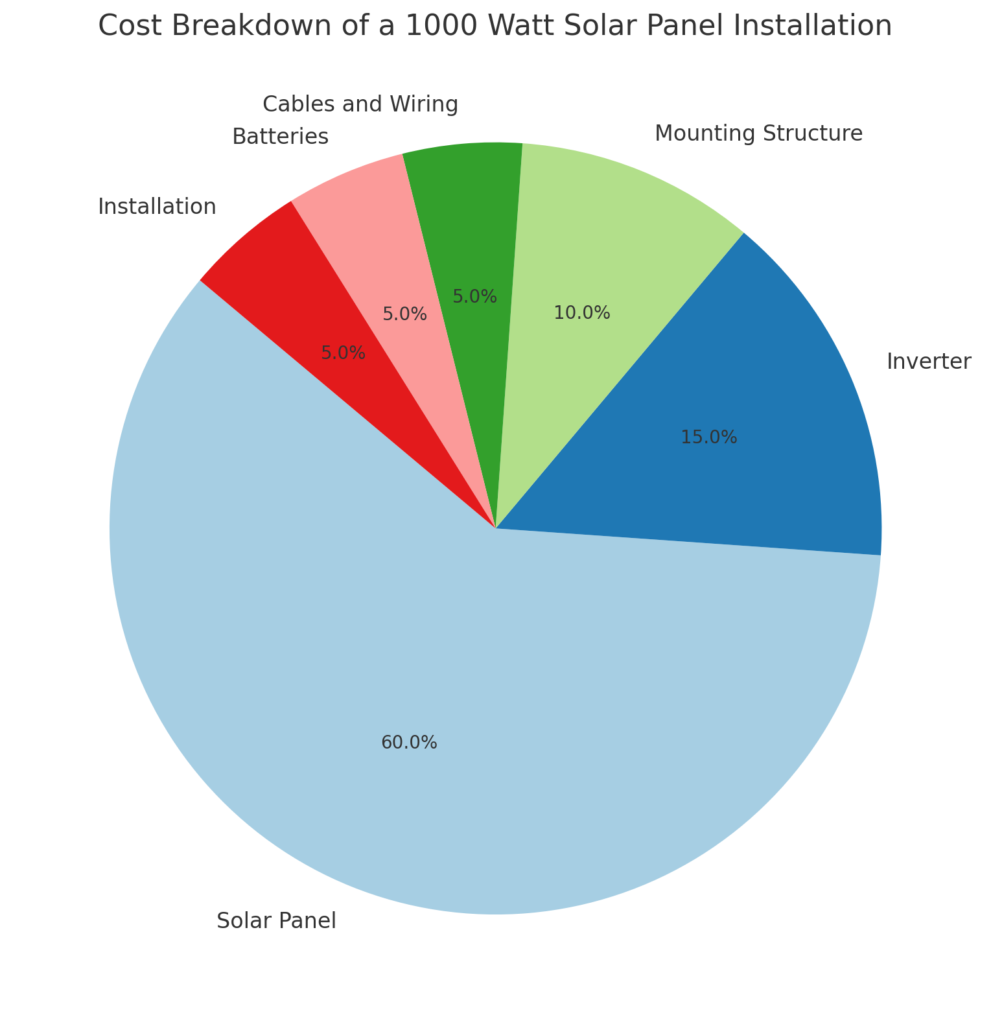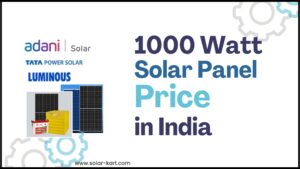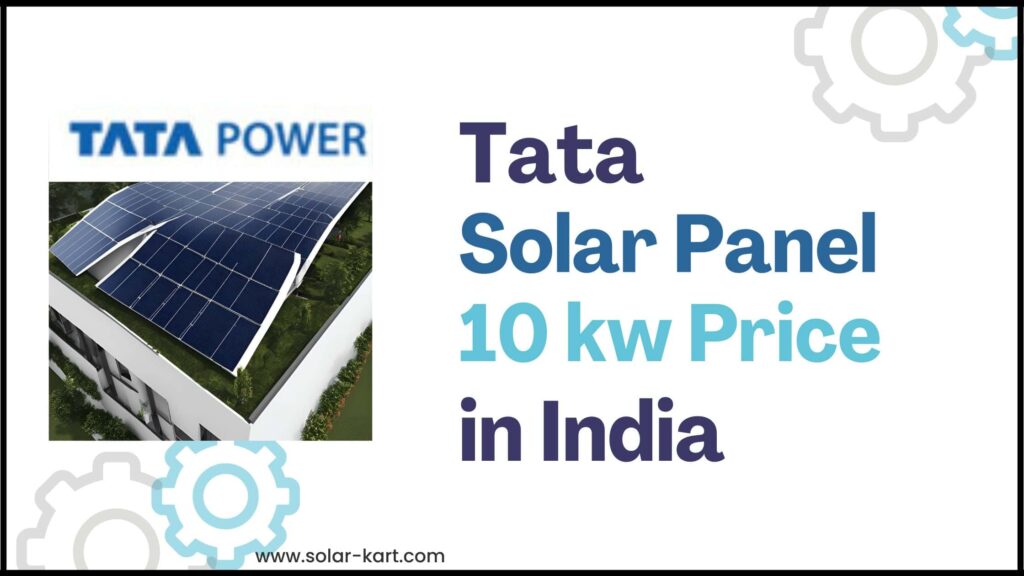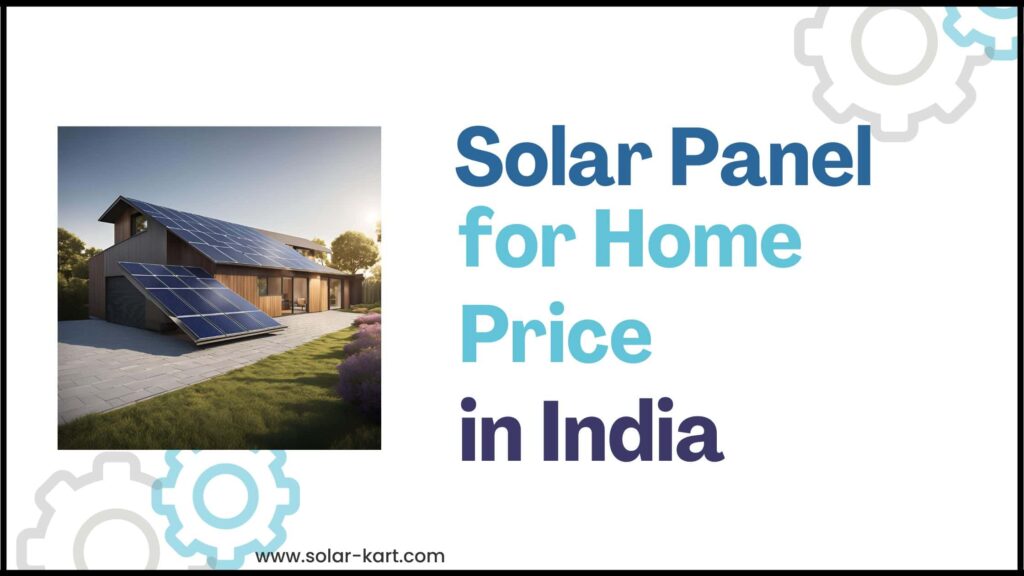As the demand for renewable energy sources continues to grow, solar panels have become a popular choice for many people in India. Among various options, the 1000 watt solar panel is a common choice due to its balance between power output and affordability.
This blog post will help you to understand the 1000 watt solar panel price in India, explore some of the most popular brands, and provide a brief overview of their pricing.
When I looked into the 1000 watt solar panel price in India, I found that the cost can vary quite a bit. It depends on factors like brand, efficiency, and the features you’re looking for. Let’s explore these in more detail so that you can find the best deal.
Factors Affecting 1000 Watt Solar Panel Price in India
Several factors influence the cost of a 1000 watt solar panel in India. Here’s a breakdown of the key considerations:
1. Brand Reputation:
Some brands are more well-known and charge a bit more because they’ve proven themselves to be reliable.
2. Panel Efficiency:
If you’re looking for a panel that converts more sunlight into electricity, you’ll pay a bit extra for that efficiency.
3. Technology Used:
Panels made with monocrystalline technology usually cost more but perform better, especially in low light.
4. Warranty and Support:
You might want to consider panels that come with a longer warranty and strong customer support, even if they cost a bit more.
5. Installation Costs:
Don’t forget to factor in the cost of installation, which can vary depending on where you are and how complex your setup is.
Popular Brands and Their Prices
When it comes to purchasing a 1000 watt solar panel in India, several brands stand out for their quality and affordability. Below are some of the most popular brands, along with their approximate prices.
1. Loom Solar
Loom Solar is a well-known Indian brand that offers a range of solar panels. Their 1000 watt solar panels are popular for both residential and commercial use.
- Price: ₹55,000 to ₹65,000
- Features: High efficiency, robust build, 25-year warranty
2. Tata Power Solar
Tata Power Solar, a subsidiary of the Tata Group, is one of India’s oldest and most trusted solar brands. Their panels are known for durability and efficiency.
- Price: ₹60,000 to ₹70,000
- Features: High efficiency, excellent performance in low-light conditions, 25-year warranty
3. Waaree Energies
Waaree Energies is another leading player in the Indian solar market. They offer a wide range of solar products, including 1000 watt panels.
- Price: ₹55,000 to ₹68,000
- Features: High efficiency, sturdy design, 25-year warranty
4. Luminous
Luminous is a popular brand in India, known for its inverters and batteries. They also offer reliable solar panels suitable for various applications.
- Price: ₹50,000 to ₹65,000
- Features: High efficiency, durable construction, 25-year warranty
5. Microtek
Microtek is a well-known brand in the power solutions industry, and they offer a range of solar panels for both residential and commercial purposes.
- Price: ₹50,000 to ₹60,000
- Features: Good efficiency, long lifespan, 25-year warranty
6. Adani Solar
Adani Solar, a part of the Adani Group, is a major player in the solar industry. Their 1000 watt panels are known for their quality and performance.
- Price: ₹55,000 to ₹70,000
- Features: High efficiency, reliable performance, 25-year warranty
Price Comparison by Brand:
A bar chart showing the price range of 1000 watt solar panels across different brands.

This bar chart compares the minimum and maximum prices of 1000 watt solar panels across various brands.
Cost Breakdown:
A pie chart illustrating the typical cost distribution among various components like the solar panel, inverter, mounting structure, etc.

This pie chart illustrates the typical cost distribution among different components of a 1000 watt solar panel system.
Understanding the Cost Breakdown
The 1000 watt solar panel price in India includes several components. Here’s a breakdown of what you might be paying for:
- Solar Panel: The core component, the cost of the panel itself, can vary based on brand and efficiency.
- Inverter: Converts the DC electricity produced by the solar panels into AC electricity for use in your home or business. This adds to the overall cost.
- Mounting Structure: Ensures the panels are securely fixed, either on the ground or on rooftops. The cost depends on the material and design.
- Cables and Wiring: Necessary for connecting the panels to the inverter and other components.
- Batteries: If you opt for a battery backup system, this will add to the cost. Batteries store excess energy generated by the panels.
- Installation: Professional installation is recommended, and the cost varies based on the complexity of the setup and location.
Benefits of Investing in a 1000 Watt Solar Panel
Investing in a 1000 watt solar panel in India can offer several long-term benefits:
- Cost Savings: While the initial investment might seem high, the long-term savings on electricity bills can be substantial.
- Energy Independence: With a solar power system, you rely less on the grid, which can be especially beneficial during power outages.
- Environmental Impact: Solar panels reduce your carbon footprint by generating clean, renewable energy.
- Increased Property Value: Homes with solar installations can have a higher market value due to reduced utility costs and environmental benefits.
- Government Incentives: The Indian government offers various subsidies and incentives to promote solar energy, making it more affordable.
Conclusion
Understanding the 1000 watt solar panel price in India is crucial for anyone looking to invest in renewable energy. With the growing demand for solar power, several reputable brands offer quality panels at competitive prices.
Whether you choose Loom Solar, Tata Power Solar, Waaree Energies, Luminous, Microtek, or Adani Solar, it’s important to consider factors like efficiency, warranty, and additional costs before making a decision.
Read also:



